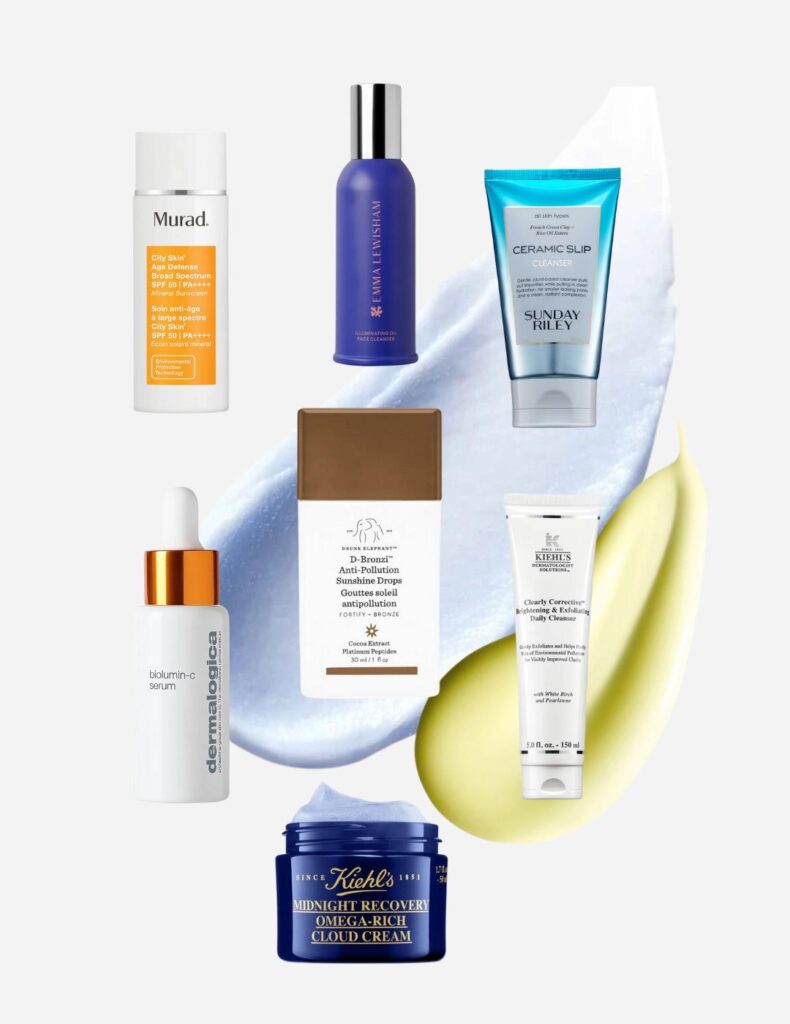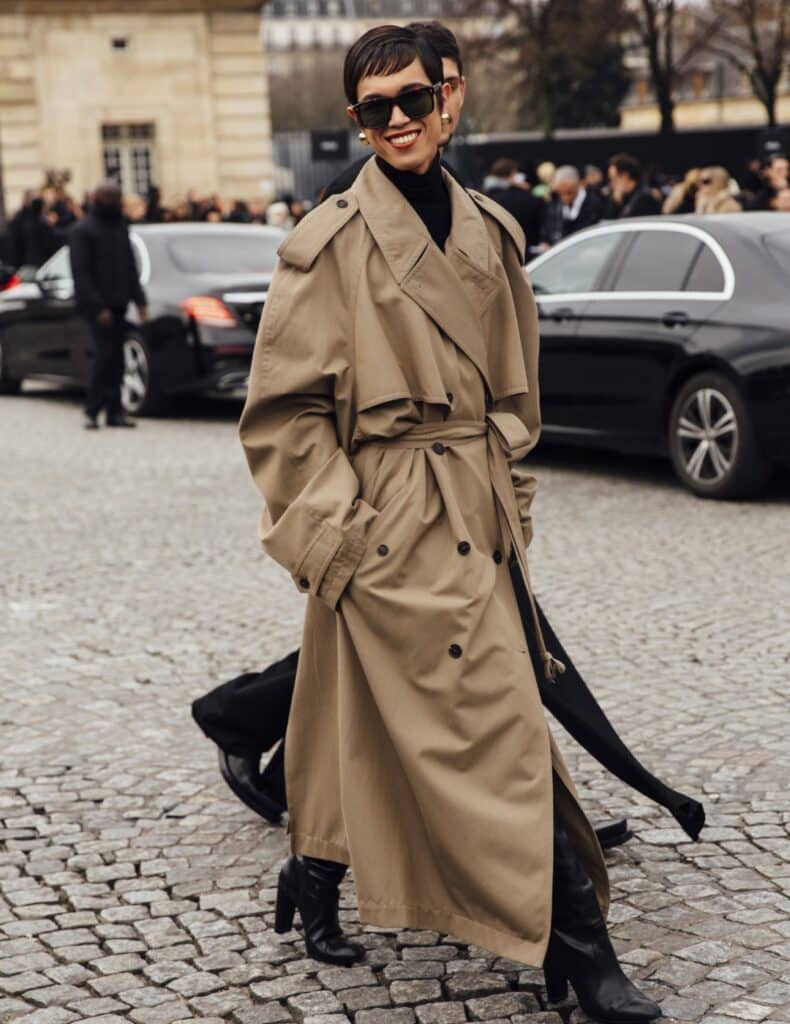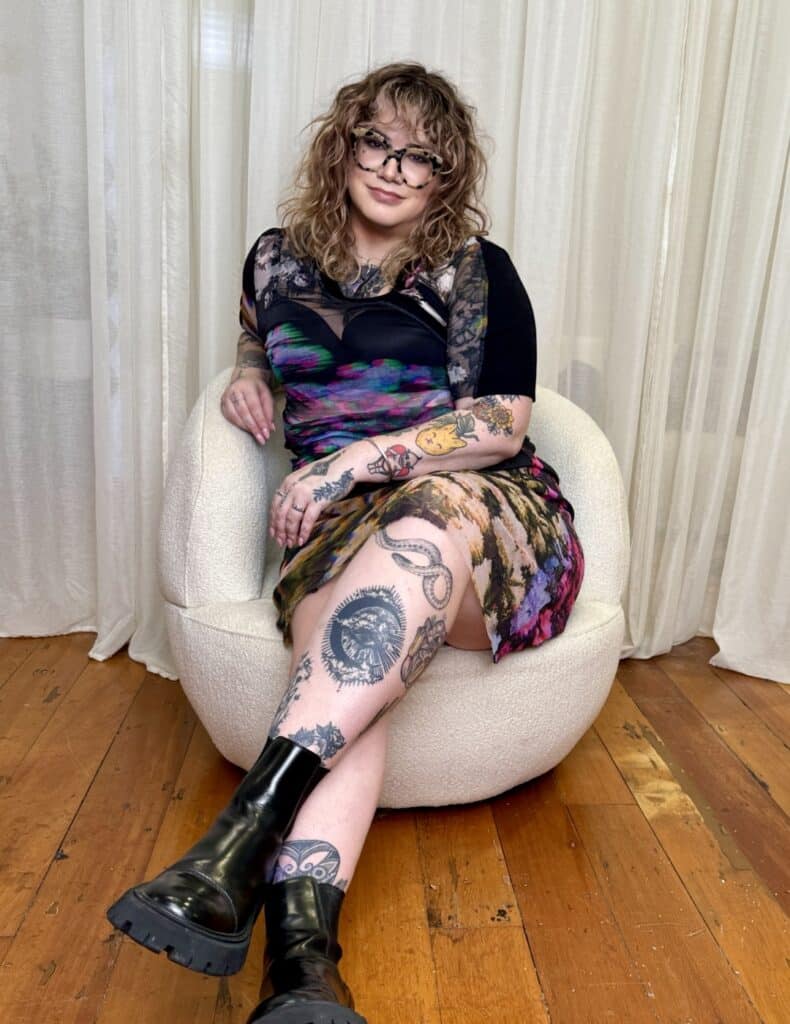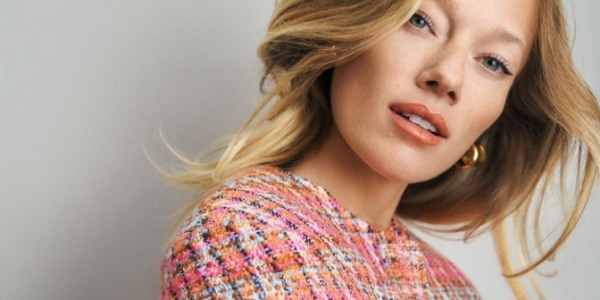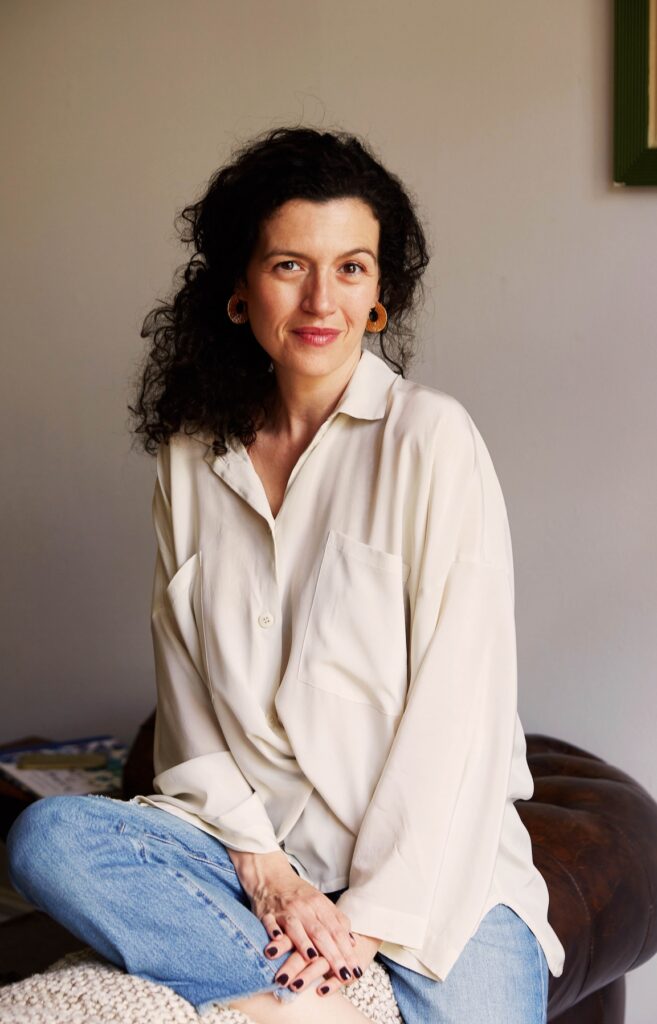
This article originally appeared in Fashion Quarterly, Autumn 2022.
Noelle McCarthy is a presenter, producer, podcaster and writer, and now she’s also the author of a book. Titled Grand, the memoir released on March 29, 2022 is predominantly set between New Zealand
and Ireland, and deals with her upbringing and sometimes fraught relationship with her mother. The author of another must-read, Sorrow & Bliss’ Meg Mason, calls it “desperately funny, hysterically sad, so beautiful and so humane”, and we wholeheartedly agree. We quizzed McCarthy about the art of telling personal stories and not always being the heroine of your own.
Q&A with Noelle McCarthy
What made you choose non-fiction for your literary debut?
“I think I started writing non-fiction because I felt like I didn’t have the skills or maybe the boldness to write fiction. I’ve always found it easier to tell true stories, rather than make them up. My family’s like that too; everybody tells stories about things they saw or heard.
We adore how you so effortlessly bring your characters to life, and one of the great ways you do that is through their diction, and particularly the Cork dialect. How do you manage to get it so right?
“My mother had very distinctive ways of talking and so did [the rest of] my family. I learned how to be a good listener. I’ve been following my family around all my life and for the last five or so years, I’ve been following them around with a notebook. I’ve been writing it down, and everyone’s going, “Oh for fuck’s sake, don’t put that in the book!” It’s been a joke. Cork in itself is extremely distinctive, so I’d listen to the radio and read Irish books or just ring my sister.”
By nature, memoirs are incredibly personal stories, but every person’s stories interact with other people’s stories. How did your family and friends feel about you writing this book?
“Very early on, I shared it with my sister. It was very important to me that she felt like I was truthful and that it was fair, because it’s a hard story in places — it’s not necessarily the happiest sort of family, but what family is, I guess. It was also very important to me that she felt that I hadn’t made any grave errors. After she read it, she said, “I can hear her — I can hear Mammy.”
You talk about your mum often being with a bottle of Carling beer, but never use the word ‘alcoholism’. Was that intentional?
“You can’t tell somebody else that they’re an alcoholic — it’s an identification thing. [In this book] I tried to show it rather than put a label on it. I think the way my mother drank and the way it affected our lives was lots of different things. Like it was boredom and powerlessness and enjoyment and culture — you know, like everybody drinks in Ireland. So I think it’s almost unfair to single her out in that way, but I did want to show how it was part of our relationship and how it affected me and her.”
In your author’s note, you say that writing this story has forced you to consider that you may not be the hero of your own story in the way you thought you would. How hard was it to put yourself under the microscope?
“I think with memoirs, you have to acknowledge your own fallibility. I thought I was so self-righteous and misunderstood as a 14-year-old, and I was actually just like this incredibly demanding, snobby pain in the ass who gave my mother no credit for anything.”
You also make a note about this book being your version of events. What sort of challenges did writing about real life happenings present?
“There were massive holes in my knowledge of my mum’s story of her life — like, I don’t know what happened at certain times. I suppose I kind of wanted to undercut it, you know, just to say that I am that participant rather than having all the answers, because there’s so much I don’t know about my mother’s motivations, and so much I don’t know about myself.”
Grand is a memoir, but your mother seems to be its star. What do you think she’d have said about it if she’d read it?
“As soon as I started to write her, she was there, and she was sort of complicated and leaves you with a lot of questions. So it actually might sound a bit clichéd, but it did teach me a lot about her. I had a different relationship with her by the end of it. She always had faith in me that I’d write a book. I don’t think she’d ever have thought it would be about her, but I think she appreciated good jokes, and she appreciated absurdity in life and those things, so I think she would have appreciated this.”
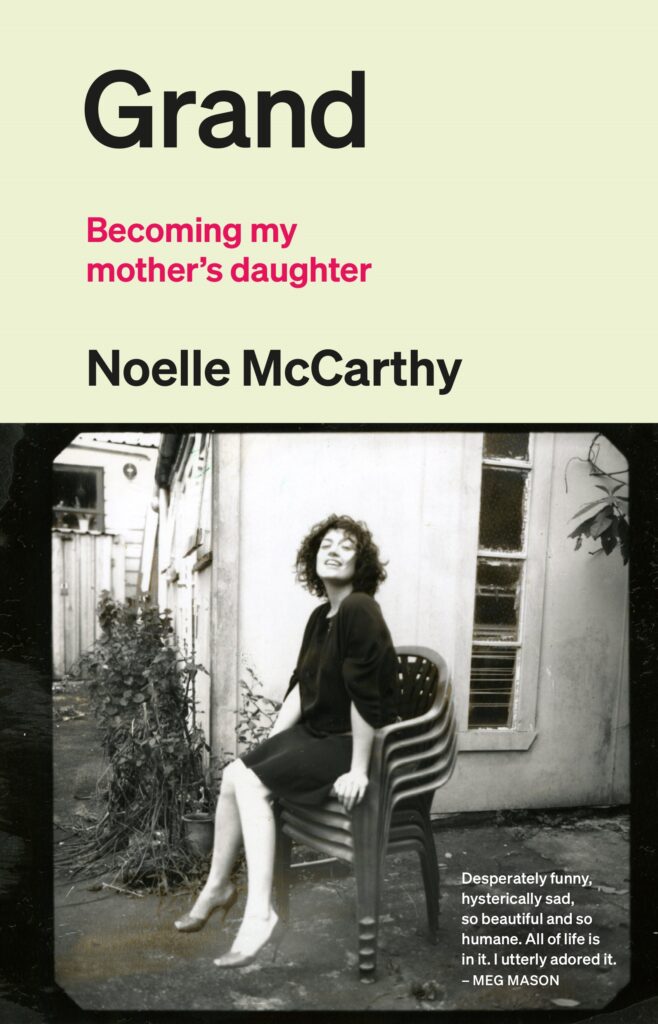
Update
In May 2023, Grand: Becoming my Mother’s Daughter won the E.H McCormick Prize for General Non-Fiction in the Ockham New Zealand Book Awards.


